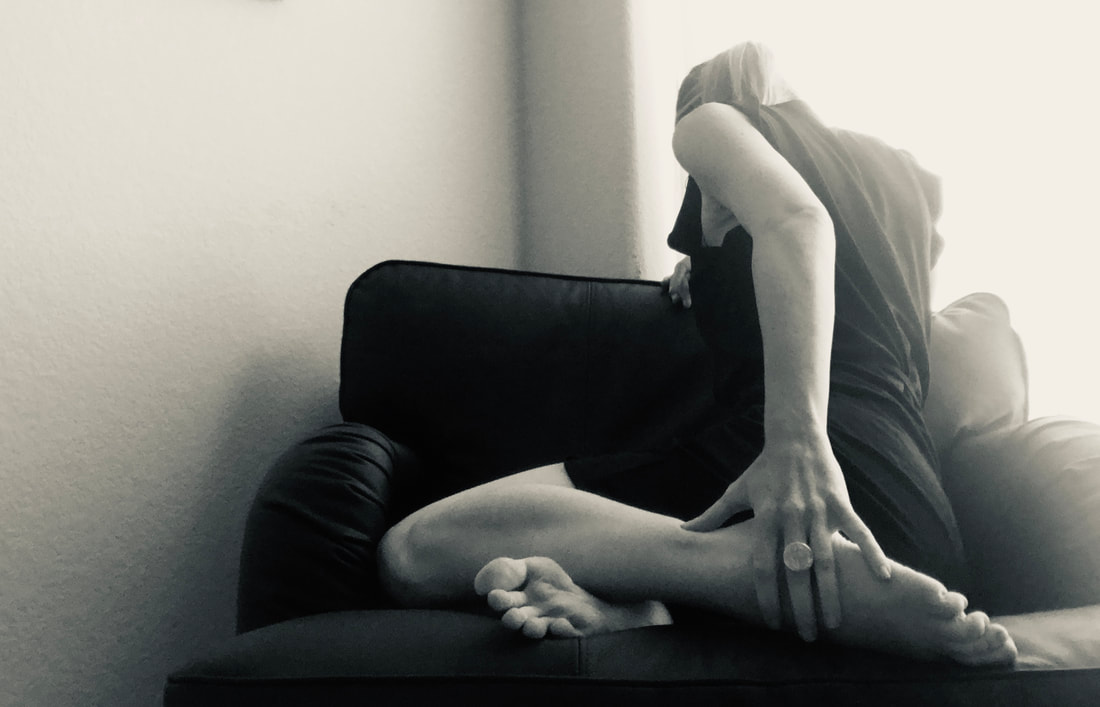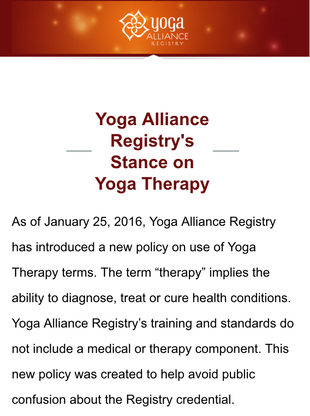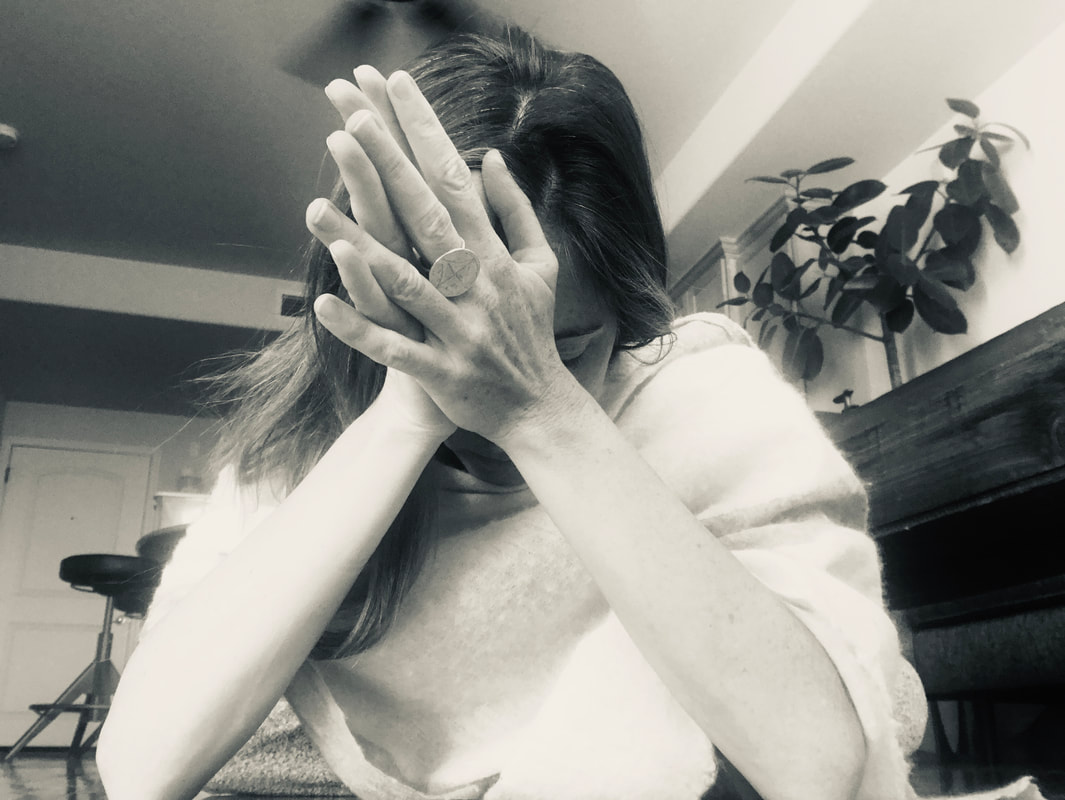|
"Trauma is all around me - I’d love to know how to better support my students, without taking on their grief."
I hear you. Maybe there is an increased awareness of trauma in the yoga world, or maybe there is more trauma, or maybe there is some expert marketing and advertising out there, but people come to me with this sort of query many times a week. WHAT KIND OF TRAINING DO YOU REALLY NEED? My answer depends on the person asking, but I’ll give you the more universal parts. First, I recommend reading a couple of books. Not youtube videos or podcasts, but actual, legitimate books written by people with the sorts of training and experience you’d like to learn from. There are occasionally video or audio recordings that are appropriate, but in my experience, these are the sound bites that are out of context and often unrefined. So start with books. Here are some great ones: In the Realm of the Hungry Ghosts, Gabor Maté Waking the Tiger, Peter Levine The Body Keeps Score, Bessel van der Kolk Second, if you are a 200 RYT or a 500 RYT and possess no clinical credentials, look for trainings aimed at your professional expertise (aka trainings for yoga teachers). Don’t jump feet-first into a training for counselors, therapists, or other clinicians, as you don’t have the appropriate background training and might start to swim outside of your lane, causing damage to you and your students. Practicing medicine without a license is a felony, and more importantly, it’s psychologically dangerous. You can google these, and see who is guiding the training and who the training is aimed towards. Third, talk to the trainers. Do not register for a multi-day training without having an actual voice conversation with the people offering the training or their representatives. Ask to speak to someone who graduated from the training. Legitimate programs that offer excellent training are more than happy to make this effort to connect you with a successful alumn of their program. UNDERSTAND YOUR MOTIVATION Every (single) thing we do is selfishly motivated. Yep. Even serving in a self-less way is still selfish, so get clear about what is motivating you become familiar with people who have experienced trauma. Perhaps you are on a healing path from trauma, grief, or loss. You were victimized, abusive, or neglectful to others, and under the guidance and with the full support of your therapist and/or sponsor, you’d like to offer a living amends. Perhaps there has been an expressed need in the community (the local treatment facility is in search of additional teachers for their existing yoga program), and you have entered a chapter of your life where you have some extra time on your hands, and are interested in giving back in a meaningful way. Perhaps you are on a healing path from trauma, grief, or loss and would like to better understand the multifaceted ways in which trauma expresses itself, and instead of working one-on-one towards your healing, you are compelled to heal others. Perhaps you have seen a need in the community (how is it that the local treatment center doesn’t even offer yoga??), and you have a tiny bit of time that you could probably carve out to offer them something better than what they have, which is currently nothing. Perhaps you are unaware that you have some trauma, grief, or loss, and are trying to distract yourself from the personal work and would instead prefer to focus on absolutely anything else. Perhaps you have noticed that there is a group of people who spend a lot of time living on the street, and you imagine that if they could just find the same transcendent peace experience you have by sun saluting or meditating, or sitting on a mat or cushion, that it would likely spontaneously rehabilitate and rejoin the work force. Tongue in cheek, I know. (you get that the top two answers are the GREEN LIGHT answers, right?) But seriously ask yourself this. Working with trauma is like fighting a wildfire. It is tricky, unpredictable, and requires specific training and gear. It takes casualties. I would love for all yoga teachers to receive some cursory training on trauma-informed practices, so that if someone in their gym, studio, or private classes has an experience, they know how to best support them (think of this like learning to use a fire extinguisher, call 911, stop, drop, and roll). I would love for really aware, well-resourced, and abundantly available people to become skilled at joining trauma care teams. I would love for more people to have access to better teachers, who understand what to do. How to refer and resource. How to best support until help arrives. Gabor Maté says, “Trauma isn’t what happened to us, it’s what happens inside of us,” which resonates with me so well. It isn’t always gun violence, war, or natural disaster. Sometimes it is intimate partner abuse, coercive and insidious and absent of physical violence. Often it is psychological or emotional, and can be triggered by sirens or yoga music, loud bangs or palo santo. For this reason, I think it is more important to understand the process of trauma rather than memorizing a list of poses or “thou shalt and thou shalt nots” as it refers to trauma. Because it depends. It always. Depends.
0 Comments
 There is an unhelpful idea I’ve heard: once you start teaching yoga, you’re a yoga teacher forever. I believe this is both true and false. It’s true in the sense that if you have ever been perceived as a yoga teacher, you will always be a teacher to that student. Don’t believe me? Imagine you’re at a burlesque show, and the cast includes someone who used to be your postal worker, someone who used to serve coffee at the corner coffee shop, and the person who was your kid’s kindergarten teacher four years ago. The teacher feels weirder, right? If you taught yoga for one class, and someone was moved, you are always a teacher to them. Once a teacher, always a teacher. But it doesn’t mean you have to teach, or you will always teach, or that you must make money teaching. You can take a break. In fact, I think you’ll need to. It may be true in other fields as well, but it starts with exuberance - you extoll the benefits of stretching, ujjayi, lycra, and proper blanket folding. It’s adorable, how you become passionate about Nidra or creative block usages, or tell people what Guru really means, and how their guru could be a cat or a cold sore. Then… at a point… complacency. You catch yourself thinking you “have to go to work” on the way to teach a class, the way you used to feel at your old job when you were surrounded by TPS reports or 31 flavors. You throw shade at the teacher with the same tired playlist, who taught the same jazz last week, and you play hooky from yoga. And then? Resentment. Resignation. Dark times. You hear yourself say that yoga isn’t what it used to be, or that a certain lineage is a cult, or another is a veritable vending machine for teachers, or worse. “Oh gosh!” you think, “I’m starting to lose it.” And then? You become destructive. Practicing more and more until you believe it again, fast, run, or feast because you feel so tremendously out of sorts with the practice. Didn’t you used to like this? Wouldn’t working at McDonald’s make more sense? Then at least you’d have a reliable paycheck and possibility for advancement. This is normal. Typical. It happens, and rather than trying to avoid it, I’ll encourage you to try to embrace it. (and take appropriate action) Teaching has seasons, like life, and it is incumbent upon you to notice when the leaves start to change and you head into the darkness of a yoga winter. Also, it would be helpful if we could agree to be honest about this experience, rather than trying to hide or stuff our yoga winter and march right on through it. Have you tried to plant seeds in the snow? (I have). I have gotten so tired, frustrated, disenchanted, resentful, and perturbed that I’ve done and said some unseemly things. Thankfully, in my case, nothing criminal, but I have accidentally vomited unsolicited advice, said nasty things about other teachers and studios, and (possibly) shamed people both for being vegan and for not being vegan, essentially at the same time. In these moments, I have had other teachers confide in me, as though we’re in an unseemly back alley: “I’m burnt out.” Exhausted. Overwhelmed. Spiritually bereft. For some, it is because they have the notion that they must be of service to everyone, always. For others, it’s because they believe they must DO as many practices as they TEACH, so teaching 16 classes a week is a death-march. And for many more, it is because they think that working in this way should be a joy and there is something fundamentally wrong with them for needing a break. May I suggest another option? If and when you notice complacency, pause, and tell someone. If you’re in resentment, stop, and tell someone. If you notice a feeling of resignation, vindictiveness, or sabotage, tell someone. Maybe what you need is a yoga winter? Winter is a gorgeous time of darkness, silence, and rest. It is not a bad thing, it is a necessary thing, because creating and growing require energy. You are not a machine, and while you do have an infinite capacity to teach, to create, to support, this capacity requires rest. I’d like to drop the shame, and let this be part of our wellness practice, when we talk with one another about how teaching is going for us. I’d like to invite studio owners and managers to incorporate this line of questioning into annual reviews, mentoring sessions, and check-ins. How are you doing? How is your teaching? When was your last winter? Let’s talk about it. Getting out of a yoga winter is a one-step process: Wait. (rest). You with me?  Yoga teachers teach, they don't TREAT. Jen with Anatomy for Yogis and I have been saying this for years - your yoga teacher's 200 hour or 300 hour or 500 hour training does NOT train them to diagnose or treat any conditions - so please don't ask. It is so tempting to want to step over that line and offer you something, except it could be the wrong thing, and we're just as trained to know as your accountant. Here is a quick primer on our scope - if yoga is HURTING you, as in, "wow, my shoulder really hurts in side plank" we are trained to help you do side plank in a way that does NOT hurt you. Or we can recommend alternate poses. We can understand the anatomy and physiology of various functions and dysfunctions, and we can help explain them to you. We can teach around a challenging area, or help you breathe through difficult moments, diagnoses. We can teach you how to need less pain medication by using meditation, but we can't tell you to adjust your dose. We can even ease your discomfort as you die. More importantly, we can be on your team. Whether you're seeing someone for your depression or your dislocation, we can welcome you to our classes and tell you what fits into your treatment plan. We can remind you or teach you how the body functions, we can explain your treatment provider's treatment, and we can even suggest a second opinion. But if you've taken a training with me you know that my philosophy (from David Swenson) is that YOGA is a HAMMER. It is a tool with equal capacity to heal and break, it is not a magic wand. We do not have pixie dust. We are here to remind you that you're perfect, you belong, your illusion of separation is simply an illusion. Maybe for you that comes via 75 sun salutations or licking your own ankle, and we're trained to teach you that. We are also trained to help you shift your perspective. I always say - a good yoga teacher gets you to touch your toes, and a great teacher gets you to release the want. And the best teacher doesn't cross that line - because as tempting as it is to our sweet little egos to do it just this once - just for you - just so we can cure what ails you, all it takes is one teacher wielding her ego like a hammer to destroy the reputation of yoga teachers and close off the path to yoga. Our shared goal as teachers is to bring you back to the mat - to remind you that the tools in the lexicon of yoga are always available to you, no matter what, whether it is my class or someone else's, my studio or your home studio. We are here to help you see your injury, your diagnosis, your treatment as a teacher. If we take it away, what will you learn? That is the real gift of yoga. Om bolo satguru bhagavan ki. (originally posted 1/25/2017) |
PROGRAMS for Yoga Teachers:YIN Archives
September 2019
Categories
All
|

 RSS Feed
RSS Feed
